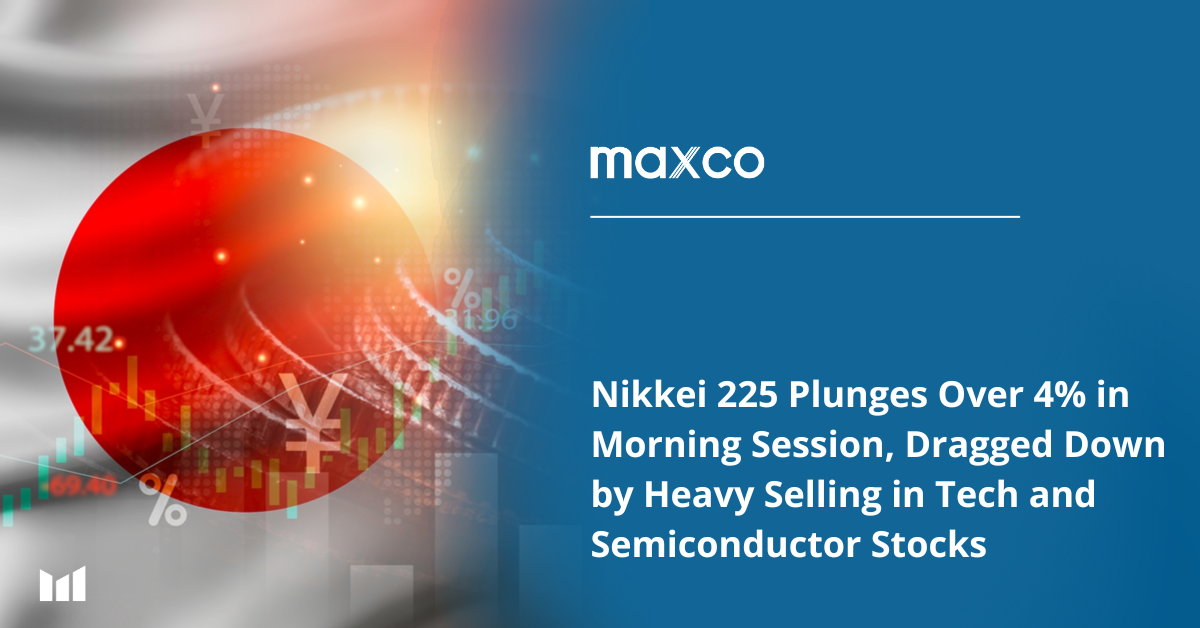Maxco Futures – The Nikkei 225 index tumbled sharply in Wednesday’s morning trade, breaking below the psychological 50,000 level as a wave of selling hit technology and semiconductor stocks, following a steep decline in the same sectors on Wall Street overnight.
By the end of the morning session in Tokyo, the Nikkei 225 had slumped 2,393 points, or 4.64%, to 49,104.05, marking its steepest drop in months. The broader TOPIX index also fell 3.25% to 3,202.56. The heaviest pressure came from chip-related names such as Tokyo Electron, Advantest, and Renesas, all of which plunged after the Nasdaq 100 in the U.S. dropped more than 2% on Tuesday.
This decline represents a sharp reversal after weeks of strong rally, during which global investors piled into Japanese tech stocks seen as major beneficiaries of the artificial intelligence (AI) boom. However, the earlier euphoria has now shifted to valuation concerns, prompting widespread profit-taking across high-risk sectors.
“The market is adjusting its expectations after an overly rapid rally,” said an analyst at Nomura Securities in a morning note. “Japan’s tech and AI sectors are following the global correction, particularly after sharp losses in U.S. chip stocks.”
In addition to external pressures, investors are also watching the Japanese yen, which strengthened slightly against the U.S. dollar. A stronger yen often weighs on major exporters such as Toyota and Sony, as it erodes their overseas profit outlooks.
From a technical perspective, the sharp drop places the 49,000 level as the nearest support zone, while resistance has now shifted to the 51,000–52,000 range. Although daily indicators still show a medium-term bullish trend, intraday signals have turned to “strong sell”, suggesting that short-term pressure remains intense.
Analysts expect heightened volatility to persist in the coming sessions, especially ahead of key U.S. inflation data and upcoming comments from Bank of Japan officials, which could influence the country’s monetary policy direction.
“The Japanese market doesn’t move in isolation — any turbulence in the global tech sector will immediately be reflected in the Nikkei,” said another analyst from Daiwa Securities. “However, for long-term investors, such corrections could present buying opportunities, especially if company fundamentals remain solid.”
This morning’s drop serves as a reminder that although Japan’s stock market has been one of Asia’s top performers this year, the AI- and semiconductor-driven rally remains highly sensitive to shifts in global sentiment.
Ade Yunus, ST WPA
Global Market Strategies


